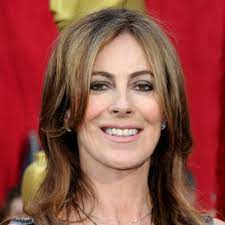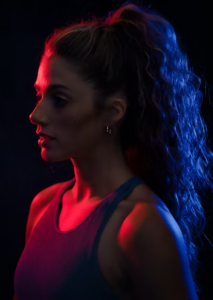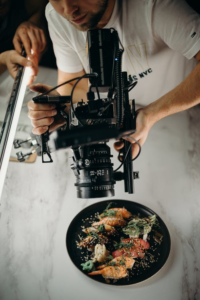The Nigerian film industry is referred to as “Nollywood.” Although lesser known, Nollywood, or the Nigerian film industry, has existed for many years. With more than 300 films produced annually, it is one of Africa’s most lucrative film businesses. The definition of Nollywood and its rise to fame are explored here. Let’s have a ride through African movies and their filmmaking.

What is Nollywood?
Nigerian cinema is informally called Nollywood. These movies are referred to as “Nollywood” because they were produced in Nigeria utilizing a type of video equipment known as a “Nolly,” which was thought to be an acronym for “Nigeria” or “National Optical Lens.” Nowadays, many studios have been constructed in Lagos with projection technology. Nigeria’s movie business is known as Nollywood. Most of these films, made by Nigerian actors and filmmakers, are screened in Nigeria and its neighboring nations. Due to the rise in internet access and the ability to watch movies online for much less money than DVDs, Nollywood has experienced significant growth over the past few years. The themes for the movies in Nollywood vary widely.
- Poverty
- Corruption
- Religion
- Prostitution
- Violence against women and children.
- Romance
- Cultism
- Love
- Relationship

How Did Nollywood Start?
Nollywood produces more than a thousand movies in a year. Due to its popularity on the internet, Nollywood has become a very well-liked type of entertainment in Nigeria and abroad. The Nigerian film industry, known as Nollywood, was founded in the 1990s. A group of Nigerians produced movies in the Nigerian language for Nigerian audiences to escape the bitter truth they come across in day-to-day life. However, despite great efforts, they experienced stumbling blocks such as censorship laws, penury, and poor infrastructure that refrained them from moving forward. As days passed by with some relaxation, the Nigerian filmmakers started bringing in new techniques, such as unique effects not previously found in African films.
Nollywood is one of Africa’s most successful film industries and brings billions of dollars annually. Chinua Achebe, a Nigerian author who released “Things Fall Apart” in 1958, is credited with starting it all. He wanted to make films but had no idea how to make one. Instead, he authored “The Education Of A British-Protected Child,” which became his most famous work. The book speaks about how to establish a film company from scratch. He sent the book for publication abroad due to the political unrest in Nigeria, and it was never accepted. However, the book got published by Oxford University Press in 1975.
Nollywood is a rapidly expanding industry, and it’s easy to understand why. The world has positively welcomed Nigerian films into its homes. Being one of the most expressive people in Africa, Nigerians have produced some genuinely amazing films that will keep you enthralled for hours. The Nigerian film industry, known as Nollywood, has experienced tremendous growth over the past few decades.

The Five Phases of Nollywood
The history of Nollywood films can be divided into five phases, which are explained below:
The Origin: After independence in 1960, the Nigerian film industry started producing films shot on celluloid. The cinema theaters cropping up in Lagos, credit goes to the economic reverberation created by the foreign investments.
Video Filming: Due to several factors, the Nigerian film industry faced a decline in the 1980s. This included the devaluation of the Nigerian currency and poor production equipment. The audience surged to a progressing Nigerian video film industry that released films shot explicitly on home videos to TV, selling the VHS copies to the domestic market. “Video Films” became the norm, setting industry-standard subsequent to Chris Obi Rapu’s film Living in Bondage (1992), turning out to be a blockbuster.
The Emergence of Nollywood: Nigerian film industry became Nollywood with the triumph of “Video Films.” As a result, Nollywood served as a powerhouse for global movies, becoming one of the opulent employers in the country. Nigerian film companies release four to five films daily for a Nigerian audience of close to fifteen million and approximately five million in other African nations.
The Modern Nigerian Cinema: Although they were gross, the Nigerian Video Films were low-budget productions. The government’s investment in Nigerian films and the trend of modern cine theaters that dismissed video films resulted in a revolution during the 2000s. It gave birth to the Modern Nigerian Cinema, which brought complex stories, talented Nigerian actors, and professional production values to the spotlight. Thus flocking the audiences to the superhit films like Irapada, The Wedding Party, etc., drawing invitations from international film festivals and creating box office records.
At Present: The Modern Nigerian Cinema made Nollywood the second largest cine sector worldwide, excelling even in the U.S., which stands as the third most-grossing film industry. Nigerian Cinema accounts for five percent of the nation’s GDP. A shout-out to the western streaming services, the just-out films and television shows have looped viewers globally.
Why The Name Nollywood?
The Nigerian film industry (Nollywood), has existed since the early 1990s. The name Nollywood goes after its American counterpart Hollywood as it has got molded by western cinema in many ways. The films go by the name of Nollywood films and often stretch for two hours or longer as opposed to the typical one-hour length of a western film. In addition, they are shot on digital video rather than 35 mm film, which reduces production costs and speeds up post-production. Currently, Nigeria produces over 30 full-length movies per week, employing over 3 million people in the industry.
Is Nollywood Bigger Than Hollywood?
Nollywood is larger than Hollywood, which the world is ignorant of. Nigeria now has Africa’s greatest economy, surpassing the US and Hollywood simultaneously. Nigeria’s entrepreneurial mentality has led the way for its movie-making and business. A network of distributors has been created so that consumers may view Nollywood films on their phones at any time for a modest cost. Although Hollywood inspires the name, it is surprising that Nollywood makes more movies than Hollywood in a year. Some famous movies Nollywood produced include “Osuofia in London” and “The Figurine.” Actors like Genevieve Nnaji and Ramsey Nouah have become household names thanks to these films. The Nigerian film industry is called “Nollywood” and has rapidly expanded in recent years. And YES, Nollywood is larger than Hollywood. There are Nollywood movies that have American and European actors or directors worldwide. In Nigeria, around 1000 movies are made each year as of 2018. In contrast, Hollywood produces only 400 to 500 films annually.
What Language Is Nollywood In?
The African language, Yoruba, is frequently used in Nollywood productions, while English, Hausa, and Igbo are other languages in which Nollywood movies are made. Living in Bondage, the first Nollywood film was released in 1992.
Impact of Nollywood on the Nigerian Economy?
The Nigerian film industry contributes to job growth in a nation where the economy is mostly based on oil and agriculture. Today’s industry employs over a million people, making it the second-largest employer in the nation after agriculture. According to the African Development Bank, Nigeria’s economy will expand by 7% this year. However, there is still insufficient employment to accommodate the country’s expanding youth population. Nollywood faces the below positive and negative economic, business, and production issues.
- The emergence of new jobs
- Low production costs
- Piracy issues
- Poor funding
- Inadequate training
- Lack of technical equipment
Nollywood And African Audiences
For the first time, thanks to Nollywood, Africans could now watch movies produced by their own people on a vast scale. Since they focused on shared customs, practices, and cultures all over the continent, the movies helped dispel much of the mistrust and suspicion among people. Nollywood also promoted intra-African travel, involvement, and business. Consequently, they developed a substantial African audience. This hasn’t changed until this point, which has geared up several other African nations, like Ghana, Kenya, Tanzania, Uganda, and South Africa, to get involved in this manner of filmmaking. However, there is a worry that many emerging filmmakers are clamoring for approval and acceptance from the major worldwide cinema business.
Nollywood And Its Classical Remakes
Nollywood Classics have distinctive original storytelling, inventiveness, and accessibility. These Nollywood masterpieces have maintained their popularity through the decades. They were artistic works that reflected Nigerians’ everyday lives. They offered relatable entertainment while expressing societal and cultural ideals. A group of exceptional artists who delivered performances that made them household names and global stars was also introduced by the great Nollywood films of the 1990s. During that time, actors like Omotola Jalade-Ekeinde, Genevieve Nnaji, the late Sam Loco, Sam Dede, Nkem Owoh, and others achieved success. Some successful remakes include Living in the Bondage, Omo ghetto, The Wedding Party, and Merry Men. Recently, Netflix also joined the game and distributed remakes of movies that include Nneka the Pretty Serpent (1992) and Amaka Igwe’s RattleSnake (1995). It has also commissioned two new remakes of Ejiro’s Domitilla (1996) and Chika Onukwufor’s Glamour Girls (1994). With the exception of technology and limited budget size, these vintage films continue to significantly impact the business as Nollywood develops and increases its output and professionalism.
Five Remarkable Nollywood Filmmakers
Although there are many well-known filmmakers in the history of the Nigerian film industry, we have listed the exceptional ones who have significantly contributed to this field. Here are they:
Kunle Afolayan: An actor, director, and the son of Ade Love, a Nigerian theater and film director, is well known for his superhit thrillers Irapada (2006), The Figurine (2009), and Phone Swap (2012). He owns a production house by the name Golden Effects Picture.
Jadesola Osiberu: A writer and director, she made a revolution in the history of the Nigerian film industry with her debut feature film – Isoken (2016), bagging the third highest-grossing film of the year 2017 in Nollywood. Osiberu opened her production company Tribe 85, in 2017.
Tunde Kelani: A correspondent in the BBC and Reuters, Tunde Kelani, or TK, has embarked on his career for over forty years in photography, filmmaking, and production. His Ayinla (2021) is inspired by the life of the Nigerian musician Ayinla Omowura. He is also well known for his literary adaptations Maami (2011) and Dazzling Mirage (2014).
Dolapo “LowlaDee” Adeleke: Dolapo Lola Adeleke began her career with short films and TV productions. She completed her academics at Covenant University, Nigeria, in 2011. The Leading Ladies Africa has named Adeleke as one of the 100 most inspiring women in Nigeria for 2018.
Kemi Adetiba: She studied film production at the New York Film Academy before beginning her career as a director with one of the famous Nigerian films, The Wedding Party (2016). Her next major hit was The King of Boys (2018).
Best Nollywood Movies On Netflix
Some of the popular movies of Nollywood to watch on Netflix include:
- Ayinla
- Breaded Life
- Weather for Two
- Lagos Real Fake Life
- In Line
- Man of God
- The Bridge
- Lionheart
- Bigger than Africa
- Blood Sisters
Nollywood Videos
Welcome to Nollywood: The world’s second-largest film industry
How Nigeria’s Nollywood Became A Multi Billion and World 2nd Largest Film Industry
Let’s talk about Nollywood: The story behind Nigeria’s booming film industry















